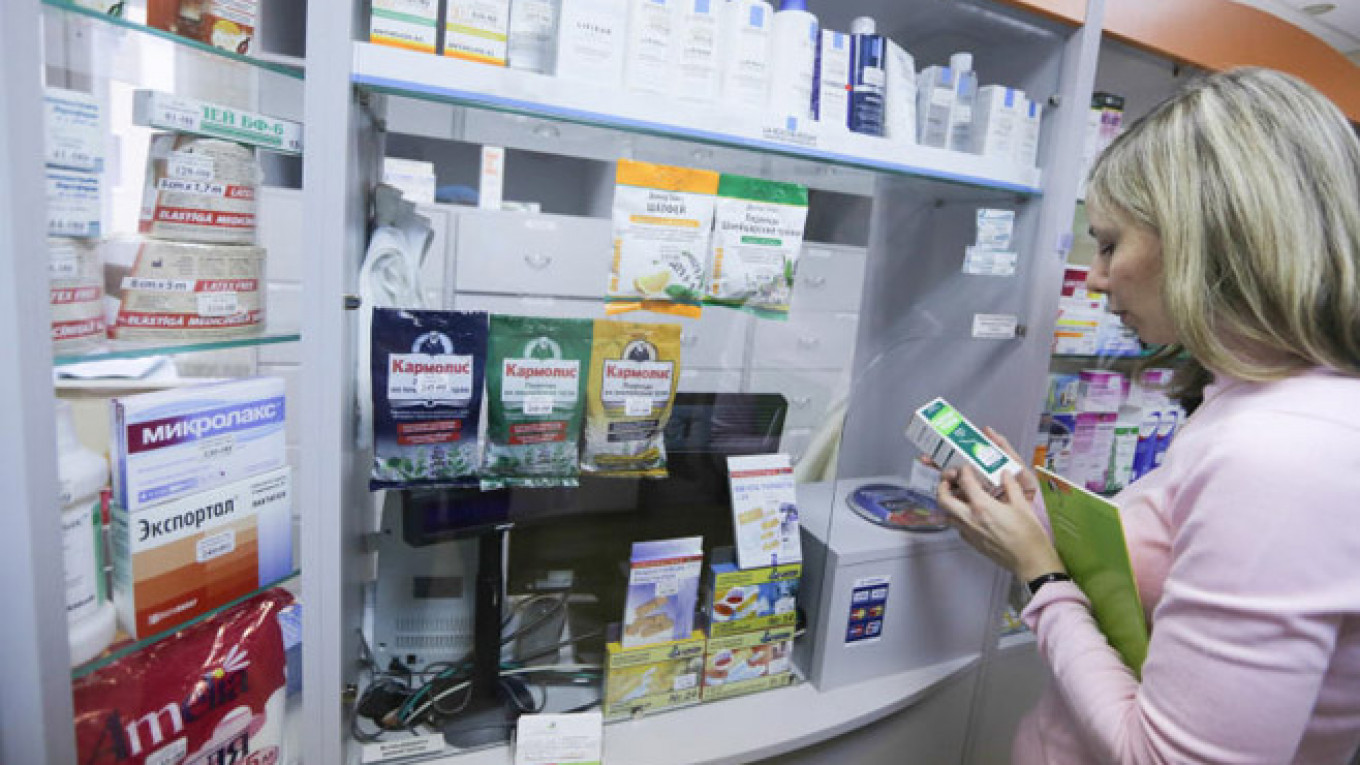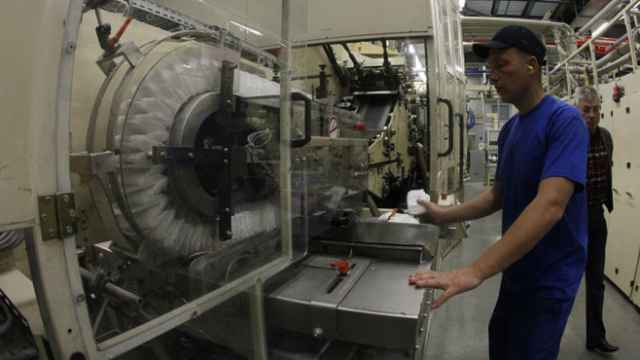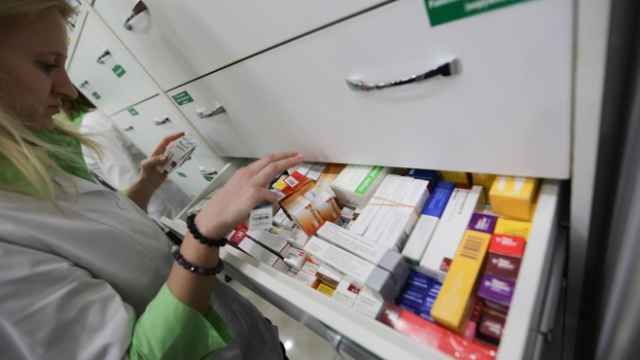The cost of medicine is rising fast in Russia, hitting consumers and challenging a government that has made its reputation as a bulwark of social stability.
The ruble's fall of nearly 40 percent to the U.S. dollar and 22 percent to the euro since the beginning of 2014 has sent the price of medicines in pharmacies soaring by more than 20 percent, according to pharmaceutical market research company DSM Group.
Prime Minister Dmitry Medvedev in early February warned that prices could surge a further 20 percent this year.
Fast-rising prices have posed a stiff challenge to the government both politically — electorates tend not to like expensive medicine — and financially, as the government distributes medicine to many Russians for free through the government's compulsory insurance program.
Over recent months, Russia's president and prime minister have both repeatedly called on authorities to keep the price of medicine under control.
Catching the industry by surprise, President Vladimir Putin in late February ordered the government to look into the possibility of creating a chain of government pharmacies to provide cheap medicine and high-potency painkillers to needy Russians.
Currency Crisis
The root of the problem is the same as in many areas of the Russian economy right now: steep currency devaluation paired with a reliance on foreign production.
In January of this year, foreign products accounted for 44 percent of the pharmaceuticals market in terms of volume and 74 percent in value terms, according to DSM Group.
No surprise, then, that after the ruble plummeted steeply in December — losing 11 percent of its value on one dark day — the price of medicine skyrocketed. The average cost of a package of medication rose 3.7 percent from December to January alone, according to DSM Group.
Even Russian producers are being hit by the ruble devaluation, as they import almost 80 percent of the active pharmaceutical ingredients they use in production of medications, mainly from China and India, said Oleg Berezin, head of the life sciences and health care industry group at financial services firm Deloitte CIS.
Producers Squeezed
The problem for drug producers is compounded by a particularity of the Russian system, which recognizes two categories of medication: so-called "vital and essential" drugs, and non-essential drugs.
The prices of the 608 "vital and essential" drugs are regulated by the government, which sets a maximum wholesale price.
These maximum prices are set in rubles and haven't been adjusted since the Russian currency's crash last year, making production of many of these medicines unprofitable for foreign and Russian businesses alike.
"The least stable [production sector] is the low-priced segment, up to 50 rubles ($0.90). The profitability of producing such medications is extremely low, and even negative now," said Viktor Dmitriyev, CEO of the Association of Russian Pharmaceutical Manufacturers, a lobby group representing the country's largest drug producers.
The government is currently discussing raising the maximum wholesale prices of these drugs, with the cost of drugs with a top price of up to 25 rubles ($0.40) rising by 80 percent, up to 60 rubles ($1.00) by 30 percent, and more expensive medications at the level of inflation, Dmitriyev said.
Budgets Woes
The problem lurking beyond is that just as the price of medicine is rising, state budgets are falling.
With state income down due to falling oil tax revenues, almost all federal agencies have been urged to cut 10 percent from their budgets. Budgets for regional administrations, meanwhile, are under even greater stress.
"We already have this issue that regional governments, especially those with budget constraints, face difficulties providing medicine to all patients that are eligible to receive them for free," Deloitte's Berezin said.
State health care is turning to cheaper variants, such as generics, and may even be forced to use older medicines with lower price points. "The effectiveness and sometimes the quality of these drugs may actually suffer," Berezin said.
Much-Needed Reform
The government is discussing a range of measures for providing medicine, including, most notably, barring foreign producers from its tenders if there are equivalents produced within the Russian-led Eurasian Economic Union.
But Putin's proposal of launching a state pharmacy chain has some industry players flummoxed.
"The question is: What's the source of the funding and will it be efficient to integrate state pharmacies into the existing market environment? I'm very skeptical," Berezin said.
In the meantime, Berezin added, more vital reforms could be overlooked.
"You can actually solve [the problem of providing affordable medicine] by reforming the whole system — for example, by monitoring the prices at which particular medicines are bought at government tenders," he said.
In fact, there is no shortage of ideas on how to reform Russia's medical care system — the problem, as always, is money, said Larisa Gabuyeva, a professor of health economics at the Russian Presidential Academy of National Economy and Public Administration.
"There are many good ideas about provision of medicine, insurance. … But amid a crisis, I doubt that we will be able to change this situation," she said.
Contact the author at [email protected]
A Message from The Moscow Times:
Dear readers,
We are facing unprecedented challenges. Russia's Prosecutor General's Office has designated The Moscow Times as an "undesirable" organization, criminalizing our work and putting our staff at risk of prosecution. This follows our earlier unjust labeling as a "foreign agent."
These actions are direct attempts to silence independent journalism in Russia. The authorities claim our work "discredits the decisions of the Russian leadership." We see things differently: we strive to provide accurate, unbiased reporting on Russia.
We, the journalists of The Moscow Times, refuse to be silenced. But to continue our work, we need your help.
Your support, no matter how small, makes a world of difference. If you can, please support us monthly starting from just $2. It's quick to set up, and every contribution makes a significant impact.
By supporting The Moscow Times, you're defending open, independent journalism in the face of repression. Thank you for standing with us.
Remind me later.






